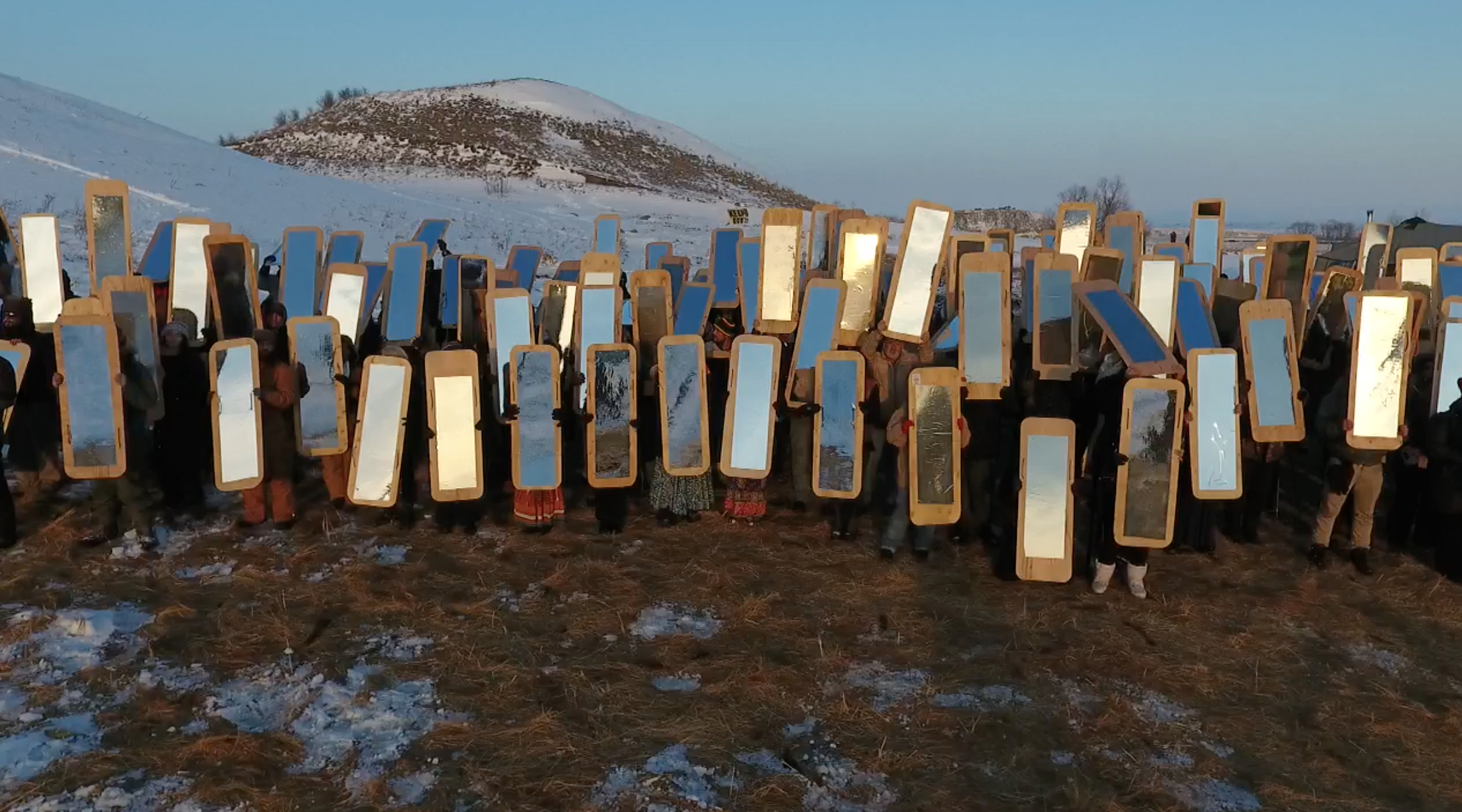
Call for Papers
Philadelphia, PA
Cambridge, MA
Across the planet, ecosystems and communities are threatened with perpetual wildfires, surging seas and coastal storms, and the radioactive dust and tailings of a new generation of industrial-scale mining that drives the energy transition at a planetary scale—among many other harrowing new realities. The planet is careening towards its worst global warming scenarios.[1] How can this sense of urgency contribute to a radical world restructuring rather than another depoliticized project of green neoliberalism and individual corporate responsibility? How can designers build—in pedagogy, representation, and praxis—the world of climate justice?
A radical body of scholarship and practice is emerging—one in which designers align themselves with the movements for climate and social justice, advocating for a different kind of political economy and society that could transform, among other things, the built environment. This worlding—a radical reimagining of world systems at multiple scales—represents a project of rupture with the historical patterns of extraction and racialization that underpin the present moment. So how might designers operate within this space? How might they generate new or reclaim existing practices to think, imagine, value, and act in ways that restructure, rather than reproduce relations of extractivism and toxicity? How might they build new forms of solidarity with movements at the frontlines of the climate crisis to envision, materialize, and govern this new energy order?
This themed issue aims to identify and amplify practices of design research and action that engage the concepts of worlding, transitions, and energy. We probe questions of system change in the socio-spatial reconstruction of energy, including: how to conceptualize such transformation—whether mitigation, adaptation, and transition, or, given the lack of sufficient political action, examine other notions such as revolution, reform, reconstruction, retreat, collapse, and survival? While we often benefit from and otherwise consume the growing body of technical research on building performance, various forms of technological and nature-based carbon dioxide removal, and other forms of computational climate research, this issue intends to collect works that are more expansive and systemic in their approach to climate justice and the energy transition. By worlding, we mean the use of media and methods like fiction, game design, storytelling, and what leaders of the Not An Alternative arts collective refer to as Red Natural History: a tradition of natural history that seeks to break the cycle of colonial reproduction in the discipline by leveraging its methods, tools, and institutional resources to support the broader, contemporary struggle for climate and environmental justice—though we are open to many forms of worlding beyond this frame. By energy transitions, we mean the shift or diversification from fossil fuel sources to other forms of technology (e.g. batteries, solar photovoltaics, and distributed generation and storage), including the disparate network of sites and non-sites (e.g. the mines, the waste disposal ponds, the manufacturing centers, and the end-use technological deployments) that might make a structural decarbonization possible along with the new forms of infrastructure, collectivity, governance, and ecology they imply and produce.
JAE accepts contributions in the categories of Essay, Design, Narrative, and Image. Essay manuscripts might contextualize earlier transitions in socio-technical energy systems—such as the shift from house-hold fuel wood to grid electricity, or the electrification of urban and rural areas in the 19th and 20th centuries worldwide. To do so, essays may critically look back—at historical analogs like Reconstruction, the New Deal, the Moonshot, Oil Crisis, and other periods of massive investment and experiments in energy systems—and forward—at speculative world-building proposals to reorganize human and planetary systems around decarbonization and decolonization. Contributions might also address specific architectural projects to highlight design’s complicity in the expansion and perpetuation of fossil capitalism—whether through carbon-intensive building materials, fossil-fuel intensive infrastructure of pipelines and roadways, and oil company headquarters—or to celebrate earlier experiments, with their frictions and failures, that transformed energy discourse and practice. Put another way, we are interested in the material histories of the political ecology of the energy system that are grounded in real places and real peoples’ stories.
Contributions in the categories of Design and Narrative might address the way that different dimensions and attributes of energy—social, material, systemic—might bear on the pedagogies and professional manifestations of this transformation. We are interested in contributions that situate energy technologies and low-carbon landscapes in the thickness of specific geographies that foreground their myriad contradictions—the supply matrices of, say, lithium-ion batteries that link resource communities like Narsaq, Greenland and the Atacama Desert of Chile with dense centers of renewable energy technology like Northern Virginia and the Land of the Living Skies in Canada. We are also interested in the broader media apparatus of design, including architectural drawings, models, and texts as well as board games, theaters and performative arts, graphic novels, and other genres of the political arts that manifest energy imaginaries as sites of material–political imagination.
Submissions could also take the form of discursive framing of images, syllabi, or pedagogic experiments, or serve as “keyword” entries that dislodge familiar terms or take on new terms, narratives, projects, and tactics of a reinvigorated design movement (to think of a few possible keywords: adaptive reuse, apocalypse, catastrophism, carbon sink, carbon budget, carbon calculator, carbon offset, carbon capture, carbon negative manufacturing, embodied energy, entropy, ecocide, eco-terrorism, metabolism, realism, sick building syndrome, sequestration, symbiosis). Throughout, we invite contributions that upend the normalized state of energy to imagine and build more just worlds.
The submission deadline for all manuscripts for this theme issue is February 5, 2024. Accepted articles will be published in issue 78.2 (Fall 2024). For author instructions please consult the author guide.
[1] As interim and assessment reports from the Intergovernmental Panel on Climate Change and the United Nations Environment Programme illustrate.
Photo Caption: Mirror Shield Project, by Cannupa Hanska Luger. Action on November 18, 2016 at Oceti Sakowin Camp, Standing Rock, North Dakota © The artist. Photograph courtesy of the artist and Garth Greenan Gallery, New York City





